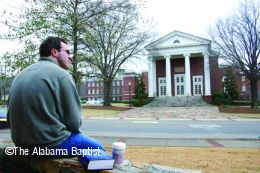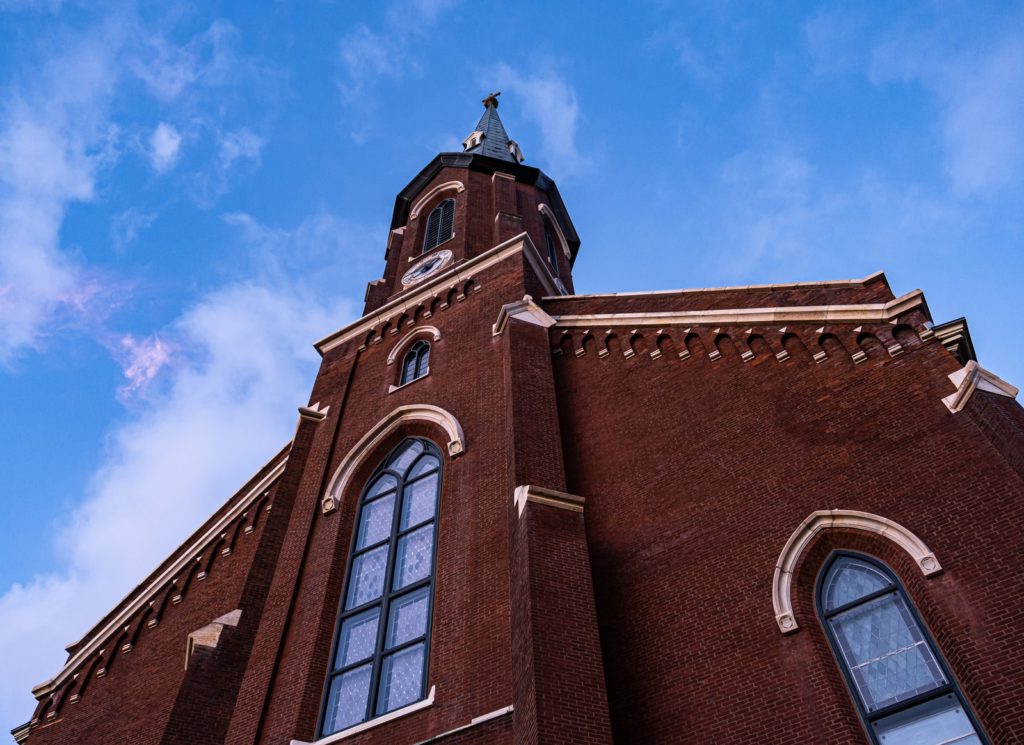More young adults are falling away from church and many are finding church irrelevant to their lives because their needs are not being met, according to new statistics released by LifeWay Christian Resources.
In 1980, more than 100,000 people age 18 to 34 were baptized in Southern Baptist churches. But in 2005, that number fell to 60,000, which is drastically lower considering the United States population has climbed above 300 million.
What’s the problem? Why are young adults not finding church relevant for their lives? LifeWay Research, a department of LifeWay Christian Resources of the Southern Baptist Convention, sought to find answers by conducting an eight-month research project, which included interviews with unchurched adults, regular church attendees and church leaders from geographical regions throughout the United States.
Churchgoers or not, the study results indicate young adults are longing for community and fellowship with peers, looking for ways to reach people in need and circling the church but not always finding a home in it.
Seventy-three percent of church members and 47 percent of nonaffiliated young adults indicated that community with other young adults is extremely important in their lives.
The lack of opportunity for connection within the church proves to be a frustration point for young adults. One study participant said, "After graduation they give you a pat on the back and say, ‘When you start a family, we’ll be here for you.’"
Another respondent said, "Young adults are in the middle — not married, not old enough, not in high school. [We’re] in this ‘ugh’ stage."
"The church’s responsibility is to reach every generation with the love of Jesus Christ," said Jim Johnston, director of young adult ministry at LifeWay Christian Resources in Nashville. "It just so happens that this generation’s biggest need is relationship. The church ought to be the author and purveyor of the best, deepest, most loving friendships around."
The second most important thing for young adult churchgoers is participation in small-group meetings to discuss life application of Scripture, according to 71 percent of the respondents. Both churchgoers and those not affiliated said they desire to participate in Bible study that minimizes finding pat answers in the exploration of Scripture.
"The lost and the saved in this age group are looking for just what the church can provide in biblical community," Johnston said. "They want absolute truth but they embrace the struggle of finding it themselves. They don’t want it to be spoon-fed to them."
One study respondent indicated it’s not always about one person with all the answers because there is value in the combined knowledge and experiences of others. Another study participant put the importance of small-group meetings this way: "What draws people is a climate of honesty. We don’t come and say we’re going to hide from each other … and give Sunday School answers."
The small-group atmosphere is also where this generation can find "advice from individuals with similar experiences," the respondent said, which is one of the top five most important things to both churched and unchurched young adults, with 68 percent and 45 percent, respectively, saying it’s very important.
Some young adults are finding such advice through connection with adults in their 50s, 60s and 70s.
"We saw churches that had cooking classes [and] financial classes where veteran Christians were teaching young adults these basic life skills they needed, and at the same time were able to teach them about Christ through relationship," Johnston said.
Another high-ranking priority of today’s young adult population is the opportunity to meet the needs of others through social action on a regular basis. Sixty-six percent of churchgoers rated this as extremely important in their lives, and 47 percent of nonchurchgoers said the same.
The study indicates that social action is a big entryway to the church for young adults. In fact, social action is cited as the major reason unchurched young adults would consider being part of a church.
"Young adults gravitate to churches that are making an impact," Johnston said. "This age group is embracing service, social action and missions.
"They will embrace the church with a cause as well." (BP)






Share with others: